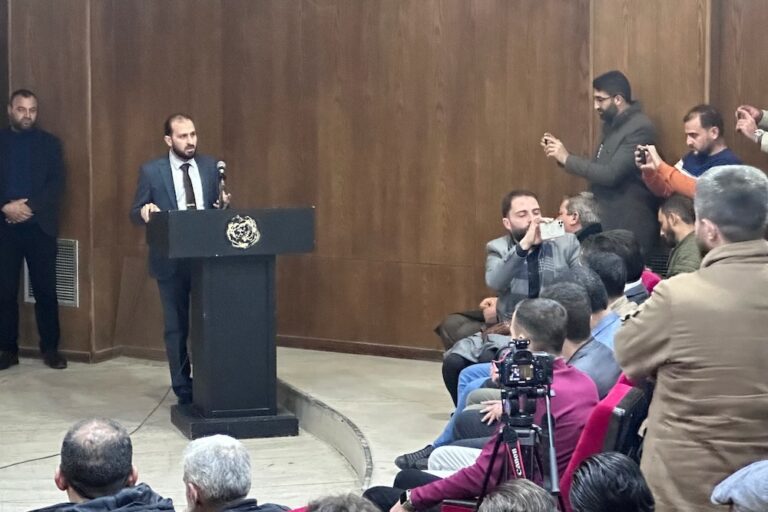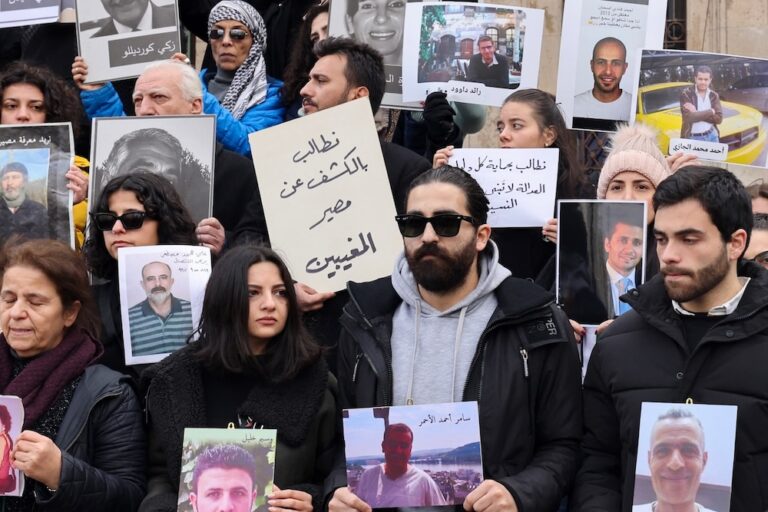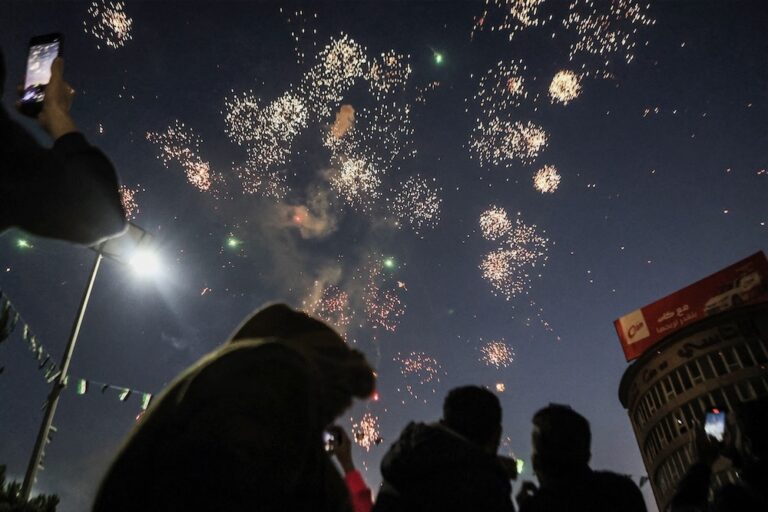(RSF/IFEX) – Reporters Without Borders has accused Syria’s judicial authorities of bringing new, trumped-up charges against detained writer and journalist Michel Kilo in order to keep him in prison and avoid having to execute the provisional release order issued by a judge on 19 October 2006. “Michel Kilo was already facing life imprisonment,” the press […]
(RSF/IFEX) – Reporters Without Borders has accused Syria’s judicial authorities of bringing new, trumped-up charges against detained writer and journalist Michel Kilo in order to keep him in prison and avoid having to execute the provisional release order issued by a judge on 19 October 2006.
“Michel Kilo was already facing life imprisonment,” the press freedom organisation said. “This escalation by the Damascus criminal court is aimed at keeping a journalist in prison at all costs, despite a judge’s release order.
Reporters Without Borders added: “In Syria, the prosecutor general defends the regime’s interests at the law’s expense. The security apparatus’ meddling in judicial decision-making is part of the ruling Baath Party’s modus operandi. But this travesty of justice has gone on too long. We call for Kilo’s release and the withdrawal of all the charges against him.”
Kilo was not freed although his release was announced on 19 October and the bail was paid. The prosecutor general held up the release order long enough for an investigating judge to bring new charges against him.
The order for Kilo’s release on bail of 1,000 Syrian pounds (approx. 16 euros) was issued by judge Halima Haitar and was signed by the referring judge. Such an order is irrevocable under the Syrian criminal code unless the defendant is charged with a new crime. On 23 October, Kilo was accused of “inciting civil rebellion” and a “serious attack on the dignity of the state, exposing the country to the threat of aggressive acts.” This provided the grounds for keeping him in pre-trial detention.
A contributor to several Arabic-language newspapers, Kilo is known for advocating democratic reforms in Syria. He also heads the Damascus-based Hurriyat Centre for Press Freedom and Free Expression, founded last year.
He was arrested on 14 May after signing a joint statement by intellectuals from Syria and Lebanon entitled, “Beirut-Damascus, Damascus-Beirut,” which called for a change in the relations between the two countries. He was charged with inciting “religious and racial divisions,” publishing “mendacious and exaggerated reports with the aim of discrediting the government” and “defaming the president and the courts.”


